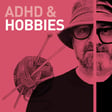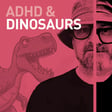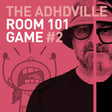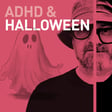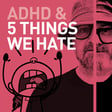
Episode 91 - ADHD and The Cosmos - How Neurodivergents created order in The Stars
In this mind-bending episode of ADHDville, Paul and Martin take a wild ride through the universe-exploring black holes, infinite infinities (yes, some are bigger than others!), and why neurodivergent brains might just be perfectly wired to ponder the biggest mysteries of existence.
This conversation is equal parts hilarious and mind-blowing.
Whether you’re here for the ADHD tangents, the cosmic deep dives, or just the banjo transitions, buckle up... this episode is a dopamine hit wrapped in a supernova.
🚀 Hit play and join the chaos!
Got thoughts? Drop us a comment or yell into the void at ADHDville@gmail.com. And don’t forget to subscribe for more ADHD-fueled adventures!
See our beautiful faces on YouTube
Put quill to paper and send us an email at: ADHDville@gmail.com
ADHD/Focus music from Martin (AKA Thinking Fish)
Theme music was written by Freddie Philips and played by Martin West. All other music by Martin West.
Please remember: This is an entertainment podcast about ADHD and does not substitute for individualized advice from qualified health professionals.



